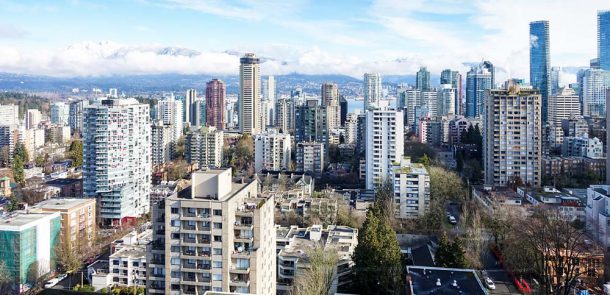Villains are important in storytelling because they help us know who to root against. But a good story has villains to blame as well as a hero with whom we can empathize. It’s why the stories we tell our kids have both.
In politics, however, we often focus on villains. Take affordable housing, for example. We all know the anger expressed at the global elite, living abroad, who drive up housing costs by speculating in our market. We also know the anger directed at some real estate professionals who engage in shadow-flipping.
Last year, the provincial government was downplaying the size of the housing unaffordability issue by claiming there was little problem beyond Point Grey, Vancouver. And now the premier and finance minister have changed course by slapping a 15-per-cent property transfer surtax on foreigners buying residential real estate. But as the dust settles on these policy changes that target those who have no (or little) influence on BC electoral politics—what happens when we all realize that housing is still unaffordable for generations of young people?
Sure, no one knows whether housing prices will continue to rise, stall or fall. But even if we imagine a significant drop in prices—or the drop is so large it corrects the dramatic price increases witnessed this past year—housing will still be way more expensive than it was a generation ago.
Fact: an average home used to cost under $250,000
In 1976-80, the average home in BC (including Metro Vancouver) cost less than $250,000 in today’s dollars. Whether the provincial average cost of housing changes to $600,000 or $500,000, both are double what the price of a home was for today’s aging population when they started out as young adults.
And what does it really mean if average housing prices in Metro Vancouver move from $900,000 to $800,000, anyhow? Most who are new to the market can afford only a fraction of those prices. The real problem is that even $500,000 buys very little today. While it would have bought two entire homes a generation ago, this now may get you only two bedrooms, which often is not suitable for families with multiple children.
A generation squeezed
Younger Canadians today are squeezed because they earn thousands less for full-time work than in 1976 despite having more post secondary education. They also leave school with more student debt, pay hundreds of thousands more for housing prices and do all this while inheriting larger government and environmental debts.
It’s time we start committing more to ease this squeeze, because taxing foreign investors is not enough. Big problems remain for those who must pay far more to purchase or rent homes than in the past. People are living with fewer bedrooms and without yards while raising kids, are further from work/school and incurring large commuting costs in time and money. People are giving up on dreams of home ownership and control over tenancy that ownership provides. Many of us are trying to figure out how to save for retirement without having the chance to get into the housing market.
We need housing heroes to search for policy changes that increase the supply of housing, while protecting green space and agricultural land. These heroes would incentivize purpose-built rentals, including on post secondary campuses and prioritize taxing housing wealth fairly in ways that work for all generations.
A first step toward affordable housing
Vancouver Mayor Gregor Robertson deserves credit for championing the Empty Homes Tax as a step toward embracing the “homes first, investments second” principle. The primary purpose for our real estate market is to provide an efficient supply of suitable homes for what typical people earn (as either renters or owners). If people can make returns on their housing investments, that’s great. But those returns should remain a secondary consideration. That’s why it is important for our tax system to acknowledge that people who buy homes for reasons other than living in them or renting them out are contributing to market forces that have pushed home prices out of reach for many young citizens and newcomers to the region.
But our heroes need to go beyond housing policy. Housing prices are the root cause of the vice grip squeezing younger Canadians between time and money pressures, but long as housing prices are higher than in the past, we must also prioritize a broader affordable housing agenda that ensures costs like child care and transit no longer add up to 2nd and 3rd mortgage-sized payments.
If we did it with healthcare, why not housing?
Canada has a proud tradition of building and adapting policy to solve big problems facing entire generations that individuals cannot work their way out of alone. We did it with medical care so people wouldn’t be broke after visiting the hospital. We also did it with old age security when seniors reported the highest rates of poverty.
Our past reminds us that we can find bold policy solutions to ease contemporary affordability problems. All we need is political will. The #CodeRed campaign collaborates with aspiring change-makers (also known as heroes-in-waiting) to build this political will so we can make sure the city, province and country works for all generations.
If you care about affordable housing you can join the #CodeRed campaign at www.gensqueeze.ca








